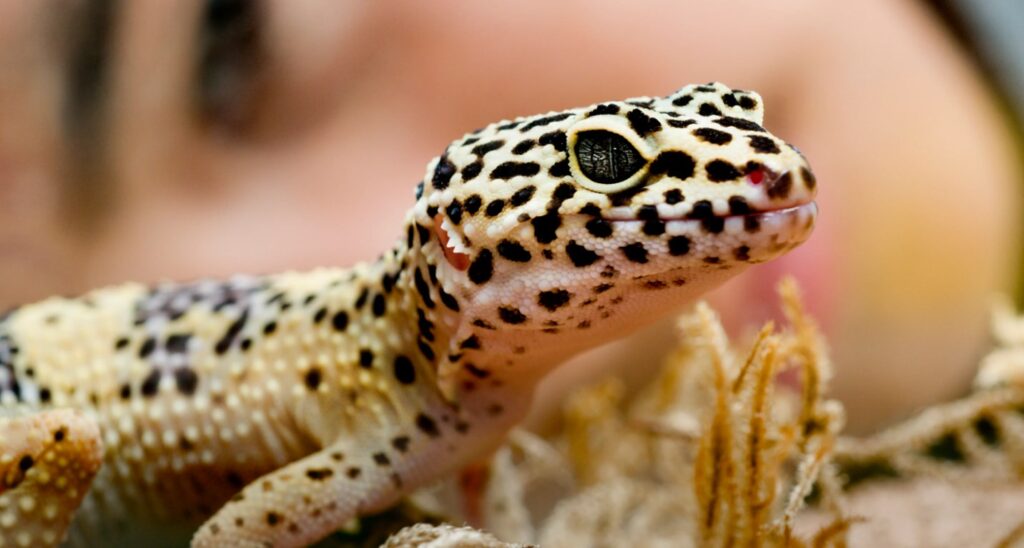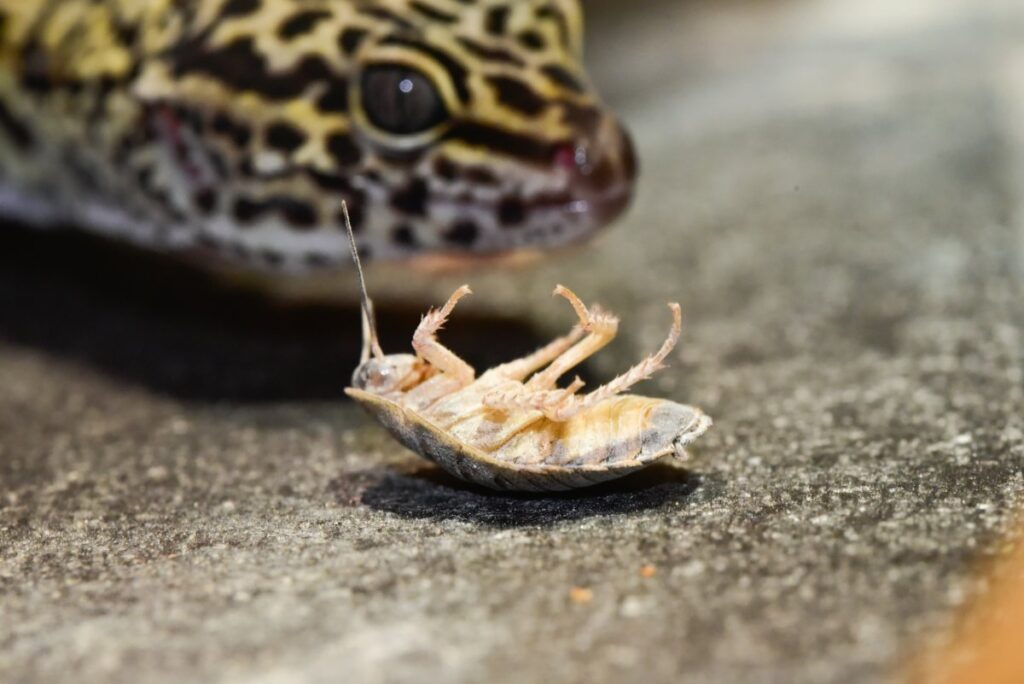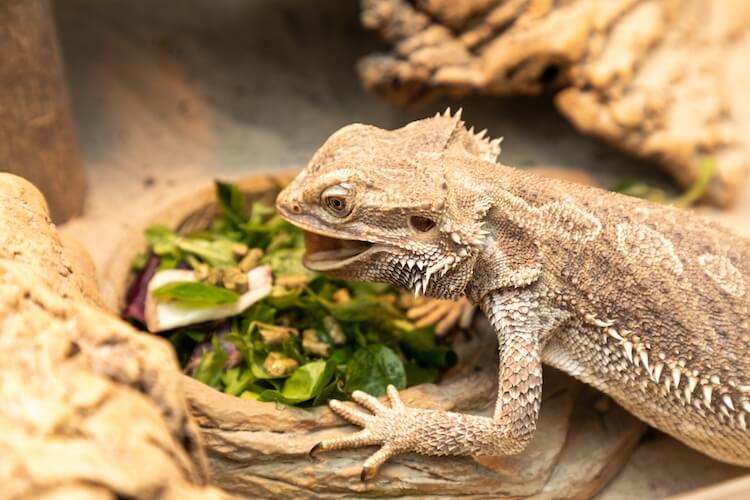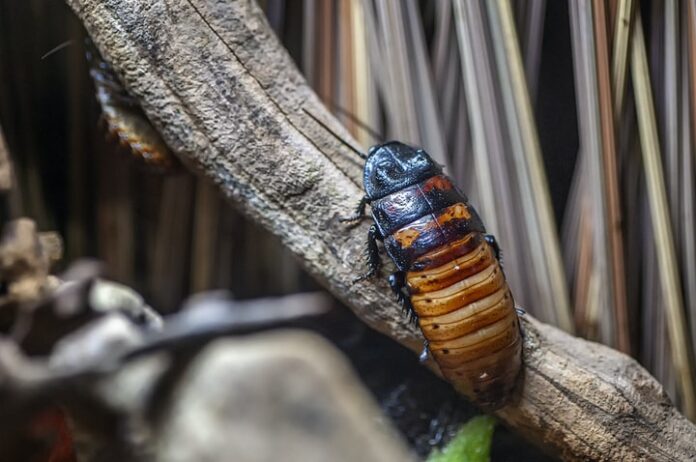Are you feeding your lizard the same old insect day in and day out? Learn how you can enhance your lizard’s life with Dubia roaches!
Lizards are not the most common pets because they have their own specific husbandry requirements. Some are friendly and easy to handle while others are shy and require a lot of special care.
Lizards require a unique diet and most of them are insectivores. In the wild, a lizard’s diet usually consists of protein from insects (e.g. locusts, crickets, and termites) and plant matter. But, as expected, their diets vary a lot and usually depend on what is generally available in the area. Given this, there is still an ideal balance of protein and plant which makes a lizard thrive and be healthy. Achieving this ideal balance might be difficult for lizard owners.
Protein Content

In captivity, conventional rules suggest that a lizard under four months of age should eat about 70% insects and 30% vegetables, whereas for adult lizards the percentage is 50% for both insects and vegetables. Gradually over time, the balance will change and lizards become more inclined to go for greens than proteins. The composition might even change to 90/10 for vegetables.
Greens are not among the major problems when it comes to feeding lizards; it’s the protein. You have to make sure that the protein is of high quality. Young lizards such as hatchlings and juveniles need high-quality protein for growth. Adult lizards need it to maintain their health and since they do not consume a lot of proteins, every bit needs to count.
The question is: how do you decide what is the right protein for your lizard? Nutritional composition is vital when choosing the right food for your lizard. If you look at the diet that lizards follow in the wild, you will find that lizards usually rely on locusts for protein, as mentioned above, which contain roughly 52% protein in their bodies. Therefore, it’s best to choose protein alternatives based on that percentage.
In this case, a better substitute for locusts is Dubia roaches. Dubia roaches have 54% of protein composition. The fat and carbohydrate content is also almost identical to locusts.
Dubia roaches are great for lizards not only for their protein content but because they also offer a few more advantages.
Breed and Care

Dubia roaches are low maintenance and pretty easy to breed. They are unable to climb smooth surfaces and this is a great advantage on trapping them in a designated area. The male and female are also easily distinguishable, making it less challenging to identify them for breeding purposes.
It’s fairly easy and economical to breed a large amount of Dubia roaches in enclosures inside your own home. But, is it ideal to breed roaches at home? Of course not!
It’s best to buy ready-to-eat Dubia roaches from reputable shops. You can find Dubia roaches for sale online and get them delivered right to your doorstep. You can check the TopFlightDubia for more information.
Gut Loading

The best advantage of feeding Dubia roaches to your lizard is that you can control the amount of nutrition you want to feed your beloved pet. For instance, if you are concerned that your lizard is not getting enough Vitamin A, you can feed Dubia roaches foods like squash, carrots, and sweet potatoes. The best part is that you can feed the roaches as much as you want.
Dubia roaches’ digestive systems can hold up to twice their body weight of food. This is called gut loading and in this way, you can naturally take care of your lizard’s diet deficiencies without the help of additional supplements.
It’s also more convenient to gut load vegetables. Lizards require nutrients from plant matter as well. But, there’s a big possibility that the vegetables might go untouched if you feed them separately. Dubia roaches can hold three days’ worth of food in their gut and that comes in handy to balance nutrition for your lizard. That means you can slowly feed the roaches the vegetables you want your lizard to eat for three whole days.
Lizards often suffer from dehydration. Dubia roaches can also be the remedy for this condition. Before feeding your lizard Dubia roaches, make sure the roaches have been fed food with high moisture content like fruits and vegetables. Roaches don’t usually drink water and they can go on without water for a long time. That’s why it’s important to combine the water in the food.
House Friendly

Every pet lover knows the importance of maintaining hygiene when it comes to their pet and the necessity of maintaining an odorless environment. But, what do you do if their food smells foul?
Foods such as dead crickets and locusts can spread an unpleasant stench that can last quite a long time. This is not the case with Dubia roaches. They have a lifespan of two years and their bodies are more hydrated than crickets or locusts, posing a lower risk of spreading foul smells after they die.
You can rest easy if you are afraid that Dubia roaches will cause chaos if kept long enough at home. That is not the case. Dubia roaches don’t last very long if they escape or are removed from their enclosure, so there’s no chance of them infesting your home.
Dubia roaches are also not jumpers like crickets. A cricket can easily escape an enclosure and make a home inside the house for the rest of its lifespan. Dubia roaches on the other hand cannot fly, climb, or jump so there’s little chance of them escaping the enclosure.
Another good thing about Dubia roaches is that they are silent creatures. Your home will not become an unbearably noisy insect farm. One thing’s for sure: no one has ever lost sleep because of noisy Dubia roaches.
Last Words
A word of advice when you are choosing Dubia roaches for your lizard: make sure you choose the right size. A simple way to measure is to ensure that the size of the Dubia roach is no longer than the distance between your pet’s eyes or the width of their head.
Based on all the benefits mentioned above, it’s safe to say Dubia roaches might be the perfect food for your lizard. The best part of it all? Lizards love the taste of Dubia roaches.
If you are still unsure of introducing Dubia roaches to your lizard’s diet, just give it a try and see how much your lizard loves it. You can start it as a once-in-a-while treat but, we promise that Dubia roaches will become its favorite snack in no time.






